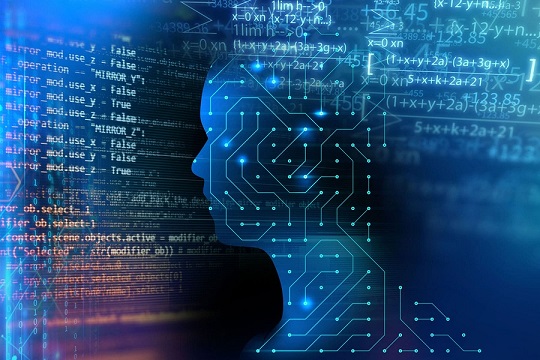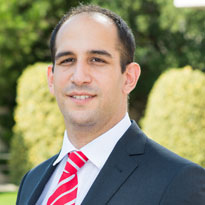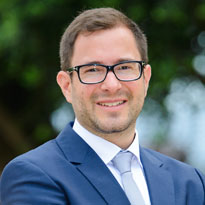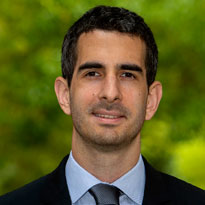Artificial Intelligence and the Future of Management Initiative
The Artificial Intelligence and the Future of Management Initiative is a multidisciplinary project that will look at how artificial intelligence is impacting management, and will prepare executives to put Al to use in their companies in an ethical and socially responsible way.
Artificial intelligence, like electricity a century ago, is a general purpose technology that will touch every sphere of economic activity. That places new demands on managers to adapt to the changing competitive landscape, to transform their organizations, and to ensure that employees – and themselves — have the skills required. IESE’s new Artificial Intelligence and the Future of Management Initiative will meet those growing needs for research and education.
The initiative conducts academic research on AI in business, encompassing both qualitative studies of managerial practice and quantitative studies using large datasets.
Objectives.
The AI Initiative works intensely to put IESE’s humanistic vision of business based on the well-being of people – from customers and suppliers to employees and fellow managers – at the heart of the transformation of our economies.
We envision a world where the benefits of AI are widely shared, the transformation of jobs and businesses humanely managed, and ethical issues addressed efficiently and fairly.
Research activities.
- Natalie Burford (through the Marie Curie Fellowship grant). ¨PLATEX: Platform Experiments: How Standardized Tools and Customized Artificial Intelligence Shape Competition and Fairness Within Platform Markets¨
- Sebastian Hafenbädl, Jella Pfeiffer and Pascal Hessler, ¨Supporting prosocial decisions with conversational agents: the role of anthropomorphization¨.
- José Azar, Marina Chugunova, Klaus Keller, Sampsa Samila: “Monopsony & Automation”
- Martin Spann, Marco Bertini, Oded Koenigsberg, Robert Zeithammer, Diego Aparicio, Yuxin Chen, Fabrizio Fantini, Ginger Zhe Jin, Vicki Morwitz, Peter Popkowski Leszczyc, Maria Ana Vitorino, Gizem Yalcin Williams & Hyesung Yoo: “Algorithmic Pricing: Implications for Consumers, Managers, and Regulators” https://www.nber.org/papers/w32540
- Liudmila Alekseeva, José Azar, Mireia Giné, Sampsa Samila, and Bledi Tasha: “Managerial Skills in the Age of AI”.
- Johannes Müller-Trede: “¨silly¨ mistakes and willingness to rely on decision support systems”.
- Enric Junqué de Fortuny: “Simulating Market Equilibrium with Large Language Models”
- Enric Junqué de Fortuny: “Tuning into LLMs: Sampling Homo Silicus and Beyond”
- Enrique Ide & Eduard Talamàs, “The Turing Valley: How AI Capabilities Shape Labor Income”, August 2024
- Enrique Ide & Eduard Talamàs, “Artificial Intelligence in the Knowledge Economy”, May 2024. https://econ.la.psu.edu/wp-content/uploads/sites/5/2024/08/Ide-Talamas.pdf
- Fioravante, R., Vaccaro, A. (eds.) Humanism and Artificial Intelligence, Springer, forthcoming 2025
- Fioravante, R., Vaccaro, A. Responsible Organization, Humanism and AI, Palgrave, expected submission September 2025
- Fioravante, R. Vaccaro, A. Personalism in generative AI deployment: deciding ethically when human creative expression is at stake, Humanistic Management Journal, Invited to Revise and Resubmit

The Observatory for AI & Ethics in Organizations aims to identify and understand ethical and organizational issues emerging due to the pervasive adoption and use of Artificial Intelligence in business and society.
Considering the rapid expansion of AI applications, discussions about ethical and responsible use of AI in organizational settings have indeed become urgent for managers, policy makers, NGOs, customers, activists, etc.
The Observatory for AI & Ethics in Organizations will explore these issues conducting research projects that will involve experts in organization science, human resource management, innovation management and applied philosophy.
Learn moreAI research and resources from IESE.
An open access presentation of IESE’s new initiative, featuring Dean Franz Heukamp and professors Sampsa Samila, Mireia Giné and Sebastien Brion.
A paper published by professor Diego Aparicio about how businesses use AI to automate pricing decisions, but then face downsides that policymakers and managers must take into account.
A report documenting the dramatic increase in demand for AI skills from 2010 to 2019, and the higher wages for those with those skills, particularly at a management level.
A report that examines the impact of AI adoption on firm growth, productivity and investment, and explores whether managers or IT specialists drive that growth.
An article by professor Sampsa Samila in La Vanguardia that looks at AI’s role in the economic recovery following COVID-19.
An open access session by professor Sampsa Samila.
A book edited by professor Jordi Canals and Dean Franz Heukamp.





























